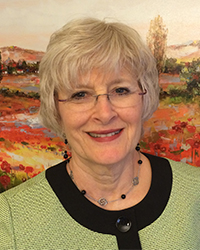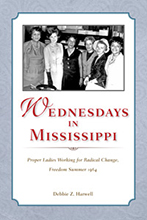Dr. Harwell Awarded the Spruill Prize
 |
Harwell’s work breaks with the archetypical understanding of the civil rights activism as the preserve of youthful radicals and demonstrations, by an effective and quiet approach of “proper ladies” using their gender, age, and class to open doors, which were closed to other activists at that time.
“The book focuses on Wednesdays in Mississippi (WIMS), a little-known civil rights project sponsored by the National Council of Negro Women (NCNW) during Freedom Summer to bring interracial, interfaith teams of middle-aged, middle- and upper-class northern women to Mississippi to meet with their southern counterparts over coffee, in order to change attitudes toward integration and black enfranchisement,” said Harwell.

The motivations for women’s civil rights activism and the influence of churches and religious leaders attempting to both uphold and tear down segregation in Mississippi are also explored in the award-winning book.
Harwell believes the WIMS model has potential for use today, and she is working to put together a panel in the near future to focus on that endeavor.The motivations for women’s civil rights activism and the influence of churches and religious leaders attempting to both uphold and tear down segregation in Mississippi are also explored in the award-winning book.
“The panel will include two of the women participants, a filmmaker producing a documentary on WIMS, and a diverse group of young women with ties to UH to discuss modern applications,” she said.
In addition to teaching in the Honors College, Harwell serves as the managing editor of Houston History, and manages the WIMS: Civil Rights as Women’s Work website; both are housed in the UH Center for Public History. Her work has also appeared in the Journal of Southern History.